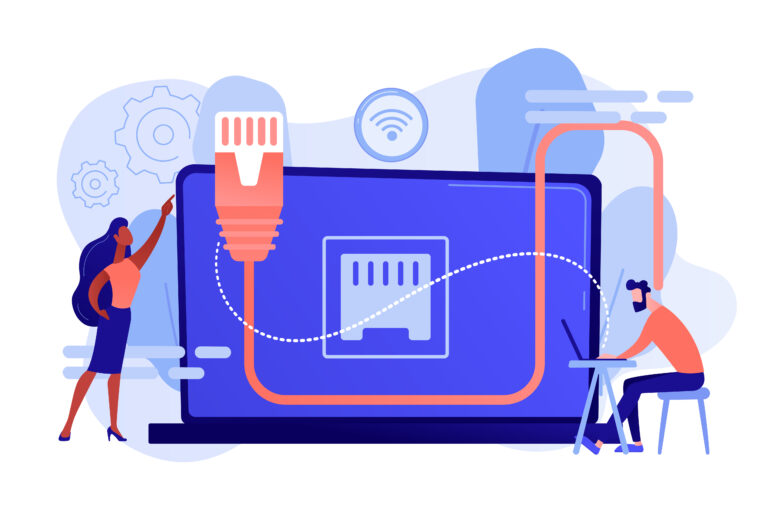In today’s business world, downtime is a dirty word. Imagine being in the middle of a video conference with a major client, about to close a big deal, and suddenly—bam!—your internet goes down. It’s not just a technical hiccup; it’s a business nightmare. That’s where the power of redundancy comes in.

What is Internet Redundancy?
Simply put, internet redundancy means having more than one internet connection. If one connection fails, the other swoops in like a superhero to save the day. This strategy ensures your business stays connected, come rain, shine, or even an ISP outage.
Why Do You Need Internet Redundancy?
Picture this: A successful business is like a well-oiled machine. Internet downtime is like a wrench thrown into the gears. Even a brief interruption can cause productivity to halt, potentially leading to lost revenue, missed opportunities, and a bruised reputation. Think about all the vital online activities—email, cloud services, e-commerce, client communications—all depend on a steady internet connection.
Without redundancy, businesses are at the mercy of a single internet provider, which might not always be reliable. But with multiple connections in place, one line can go down, and the other picks up the slack. It’s that simple!
How Do You Implement Redundant Internet Connections?
1. Multiple ISPs:
A solid starting point is having at least two different Internet Service Providers (ISPs). If ISP A fails, ISP B can step in. Ensure they use different infrastructures (e.g., one fiber, one wireless) to avoid both going down from the same issue, like a cable cut.
2. SD-WAN for Seamless Switching:
Software-Defined Wide Area Networks (SD-WAN) are like having a traffic director for your internet. They automatically detect when one connection is unstable or down and switch you to another without you even noticing. Your video call stays smooth, your team keeps working, and customers remain happy.
3. Cellular Backup (4G/5G):
For smaller businesses or remote locations, a cellular backup is an excellent fail-safe. If the primary connection drops, the 4G or 5G connection kicks in as a temporary lifeline.
4. Load Balancing:
You don’t have to wait for a failure to benefit from redundancy. Load balancing spreads your internet traffic across multiple connections, ensuring efficient bandwidth use and minimizing congestion. It’s like a two-lane highway for your data—no traffic jams here!
Mitigating Risks: More than Just Connections
Beyond multiple internet lines, businesses can enhance continuity by having redundant systems for critical tools. For instance, cloud backups for data, redundant servers, or even alternative power sources ensure you’re protecting the internet connection and the entire business infrastructure.
The Financial Side: Is It Worth It?
Sure, redundancy isn’t free, but the cost of downtime is much higher. Studies show that businesses lose thousands of dollars for every hour of internet downtime. Now, weigh that against the relatively small cost of adding a second internet connection or a backup cellular plan. It’s like paying for insurance—you hope you never need it, but when you do, it’s a lifesaver.
Real-Life Example: Retail on Black Friday
Imagine a retail business on Black Friday with internet that suddenly crashes. The chaos! No credit card transactions, no online orders, no customer service. But they’d be back online in seconds if they had a redundant connection. Instead of scrambling to fix the outage, they’re back to making sales, sipping coffee, and watching the revenue flow in.
Fun Fact: Internet Redundancy in Airplanes
Airlines, especially for in-flight internet, rely heavily on redundant connections. They use both satellite links and ground towers, so you can keep streaming your favorite shows mid-flight without interruption. If it’s good enough for a plane 35,000 feet in the air, it’s good enough for your business.
The Bottom Line
Businesses can’t afford to be offline in a world where every second of connectivity counts. Redundant internet connections aren’t a luxury—they’re a necessity. Whether you’re a small business or a large enterprise, having a backup plan means peace of mind, uninterrupted operations, and happier clients.
Ultimately, it’s not about avoiding downtime completely (though that’s great)—it’s about minimizing the impact and bouncing back fast. So, don’t wait for disaster to strike—invest in redundancy today. Because when it comes to internet connections, two is always better than
This article was written by Femi Uanzekin bringing you smooth and uninterrupted advice – just like how your internet should be. Femi is currently doing his externship with Up Front Connection, as part of our collaboration with Delete the Divide, an initiative led by the County of Los Angeles to advance digital equity in underserved communities through partnerships, infrastructure investments, and technology resources that empower residents and small businesses.
Femi Uanzekin is CISA, Network+, CISM, Security+, PMP, CRISC, CGEIT certified. Femi Uanzekin is a cybersecurity professional passionate about defensive, offensive, and preventive security and cybersecurity education.


